Get Well Soon
Donaukanal, 2008
Konstantin Gropper has studied popular music in Mannheim, Germany. That is what almost every article on the songwriter and his band Get Well Soon mentions and comments. Indeed his upbringing and education might be uncommon for pop musicians as the son of two teachers is classically trained on several instruments and therefore was able to record his sophisticated debut album all by himself. But the music of Get Well Soon is certainly not defined by the theoretical knowledge Gropper brings with him. It gains its complexity from the deep emotional impression he creates with his songs, his stunningly dark voice and the different layers of sounds – guitars, violin, trumpet, saxophone and more – that naturally grow together when his lengthily named pieces of music take off in the chorus and unfold their uplifting power. In an interview Konstantin Gropper said he would like the idea of people thinking that his songs sound somehow golden. Some may find that pretentious as some may also find Groppers dandy-like band photos pretentious, but he is certainly not the kind of artist that sticks to superficiality. Behind the golden glance there is a lot more to discover what you might not realise at first sight or listen – for example Gropper’s self-ironic kind of humour, when he surprisingly pulled out his very special kind of glasses during our shooting.
- Photography
- Simon Brugner
- Artist
- Get Well Soon
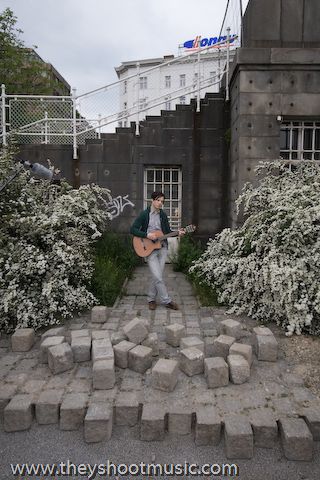
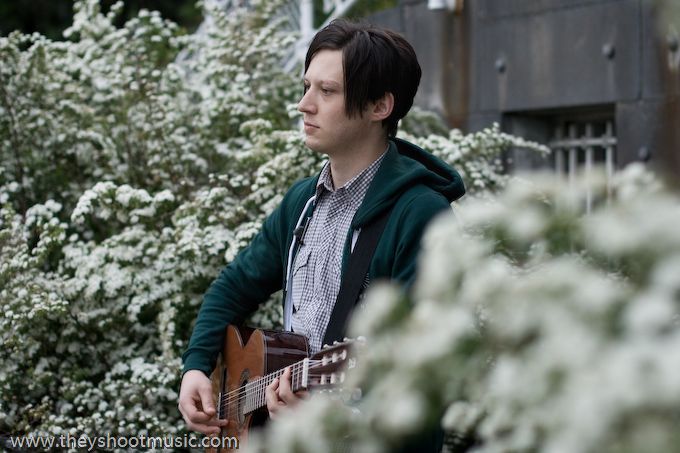
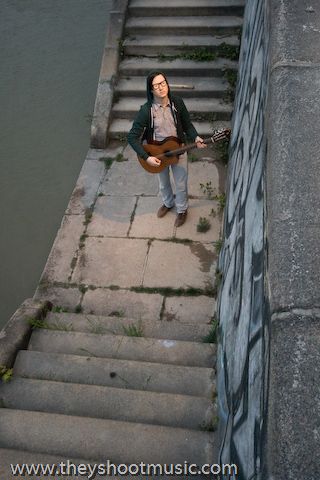
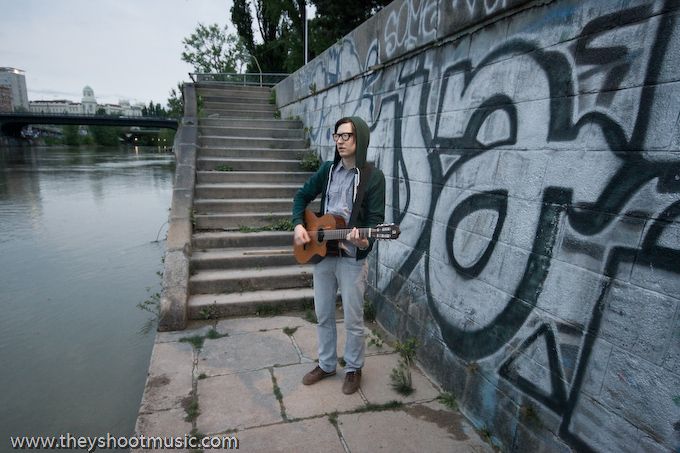
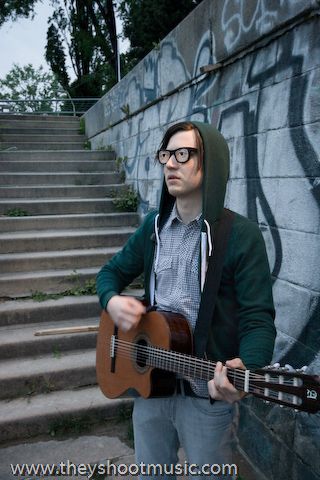
Donaukanal
Donaukanal is the southern side arm of the river Danube in Vienna. Although the 17 kilometres long canal is quite narrow it is far more connected to the city than the actual Danube, passing the Inner City including all the nightlife hotspots around Schwedenplatz as well as the popular recreation area Prater. The vicinity to the city center may as well be the reason that the canal is particularly appealing to joggers, bikers and walkers. In the past two decades local politicians often discussed chances to integrate the Donaukanal even more in the city’s life by supporting the spread of clubs and bars like the old-established Flex or the newly created Badeschiff and making it a reasonable choice to spend your night out enjoying yourself on the concrete banks of the canal. What is now the canal was the main river until medieval times. Repeated floods frequently relocated the riverbed north- or southwards and – together with extensive river training measures – changed the hierarchy. Since around 1700 the side arm is known as Donaukanal.